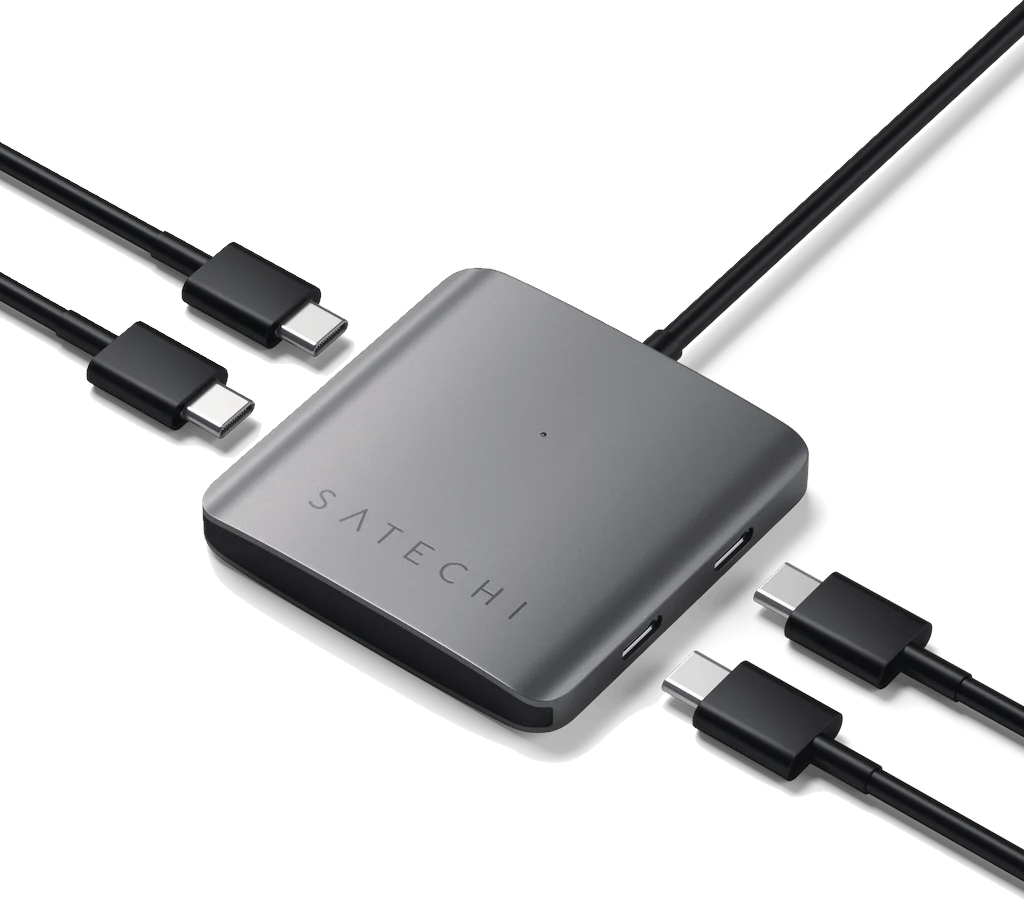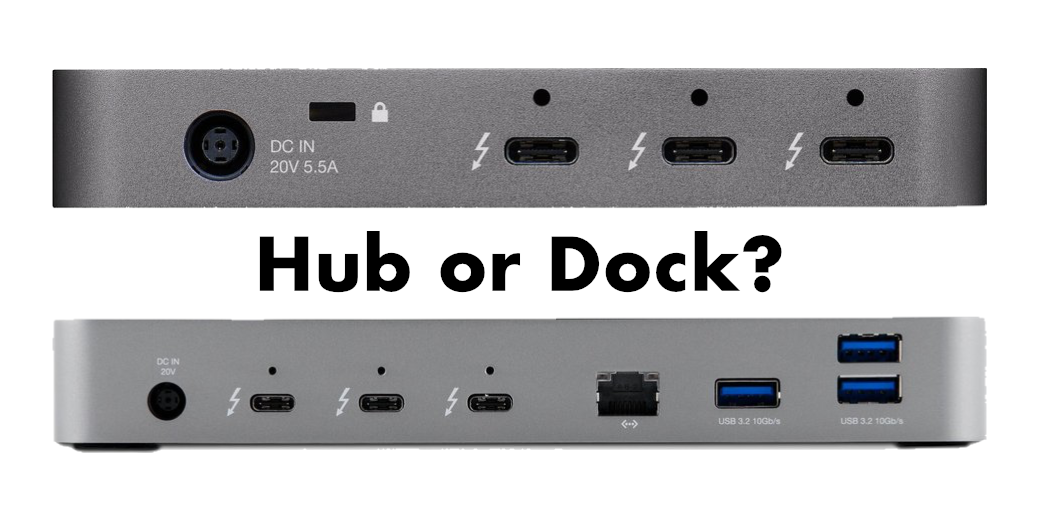
While on the road to Macstock, I asked Dave Hamilton a question that’s been festering at me for a very long time: What’s the difference between a Hub and a Dock? I’ve seen a lot of explanations on the web, but in every case, I could counter their theory with an example that proved the opposite. For example, someone would say that docks are powered and hubs are not, but there also are powered hubs and unpowered docks.
When I asked Dave, I got a surprising answer. He said he didn’t know a definitive way to explain the difference either. We just happened to be on our way to go on a tour of Other World Computing, aka OWC, who make docks and hubs, so we decided to ask them.
I’m so glad we did because we got a great answer from Rick in sales. He prefaced it by saying this is how OWC differentiate the two terms and that he wasn’t saying this was everyone’s definition.
Rick said that a hub multiplies an existing port protocol into more of the same, and a dock adds different ports to a machine.
It’s so simple and makes perfect sense.
For example, if you buy the Satechi Type-C Multi-Port adapter that gives you HDMI, USB-A, SD, and microSD slots in one bus-powered device, that’s a dock.

But if you buy the Satechi 4-Port USB-C Hub that and adds four USB-C 3.0 Gen 1 data ports, that’s a hub because it multiplies the existing port.

Likewise, the OWC 11-port Dock is indeed a dock because it adds a plethora of ports from USB-A to C to Ethernet and more.

But to get more Thunderbolt ports, you need to get a hub, like the OWC Thunderbolt Hub.

I would be remiss if I didn’t point out that while I think OWC’s explanation is clear and concise, Satechi seem to use a random set of nouns to describe their devices. Satechi have devices that are clearly docks but they call them hubs, and the dock I just described is called an “adapter”. They sell devices they call docking stations, but they only use that term when referring to big powered devices appropriate for a desk.
It’s no wonder we have trouble knowing which one is which, but I’m going to stick with OWCs terminology because it makes me happy to have a definitive answer to this question, even if it isn’t official and not everyone follows the convention.


I love that simple explanation. It’s a rule that is very easy to follow.